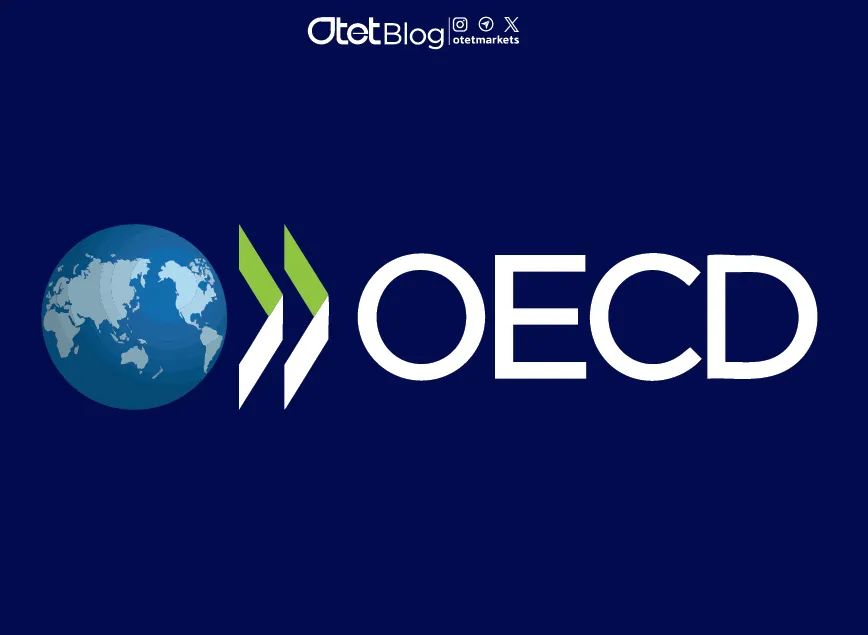
What is the Organization for Economic Cooperation and Development (OECD)?
Estimated reading time: 5 minutes
Table of contents
The Organization for Economic Cooperation and Development (OECD) is one of the world’s most influential international institutions. Its mission is to promote economic growth, sustainable development, free trade, and improved living standards across its member countries. Since its establishment in 1961, the OECD has grown to include 38 member countries, both from developed and developing economies. By providing in-depth analysis and shaping global policies, the OECD plays a critical role in the direction of the global economy.
The Main Objectives of the OECD
The The Organization for Economic Cooperation and Development (OECD) is dedicated to achieving several key objectives aimed at creating a more sustainable and equitable global economy. These objectives include:
Encouraging Effective and Transparent Policymaking
One of the key roles of the OECD is helping governments craft effective economic policies. The organization does this by gathering data, providing statistical analysis, and offering actionable recommendations. This ensures that decisions made by governments are both informed and transparent.
Read More: How to Identify the Right Companies for Investment
Supporting Sustainable Economic Development
The OECD works to foster economic growth that is based on innovation, job creation, and financial stability. Its approach emphasizes long-term development rather than short-term gains, helping countries build resilient economies.
Promoting Free Trade
The OECD encourages international trade as a driving force behind global prosperity. It works with countries to eliminate barriers to trade and promote policies that support an open and competitive market environment.
Reducing Inequality and Poverty
The organization also focuses on policies that foster inclusive growth. By developing strategies that address both national and international inequalities, the OECD aims to reduce poverty and ensure that economic benefits are shared by all.
How the OECD is Structured
The OECD’s structure is designed to facilitate the development of policies and recommendations in a collaborative environment. Here’s a breakdown of its key components:
The Council
The Council is the main decision-making body of the OECD. It consists of representatives from member countries and is responsible for guiding the organization’s overall direction and policies.
Specialized Committees
The OECD has a variety of specialized committees that focus on key areas such as education, the environment, digital economy, healthcare, and taxation. These committees carry out research and provide recommendations in their respective fields.
The Secretariat
The Secretariat is led by the OECD’s Secretary-General. It handles the implementation of the organization’s decisions, the preparation of reports, and the coordination of various programs.
Data and Economic Statistics Center
The The Organization for Economic Cooperation and Development is also home to one of the most reliable global sources of data. The organization’s data center focuses on key areas like economics, governance, and social policy, making it a valuable resource for global economic analysis.
Key Activities of the OECD
The OECD engages in a wide range of activities that contribute to its mission of promoting global economic stability and growth. Some of its most important activities include:
Publishing Analytical and Economic Reports
The OECD publishes key reports like the OECD Economic Outlook and Country Surveys, which analyze the economic status of various countries. These reports help policymakers understand global trends and make informed decisions.
Standardizing Policies
The OECD plays a crucial role in developing common frameworks and guidelines in areas like tax transparency (BEPS), labor rights, and market regulations. By setting standards, the organization helps ensure consistency and fairness across nations.
Read More: How to Trade US and European Stocks with Otet Brokerage
Comparing Country Performances
The The Organization for Economic Cooperation and Development regularly compares countries based on indicators like productivity, welfare levels, innovation, and education quality. These comparisons provide valuable insights for policymakers looking to improve their countries’ performance.
Promoting International Cooperation
The OECD actively engages in global dialogues about sustainable development, digital transformation, and the future of the labor market. Its efforts encourage collaboration among governments, businesses, and other international organizations.
How the OECD Influences Global Policy
Over the decades, the OECD has played a major role in shaping global economic and financial policies. Its projects and standards often become the foundation for official policies in many countries, leaving a lasting impact on the world’s economic framework.
One of the OECD’s most well-known initiatives is the BEPS (Base Erosion and Profit Shifting) project. This program focuses on addressing tax evasion by large multinational corporations, encouraging countries to reform their tax laws and share information more transparently. Over 140 countries have joined the BEPS framework, improving tax systems and increasing transparency worldwide.
The CRS Standard – Automatic Exchange of Tax Information
The Common Reporting Standard (CRS) is another groundbreaking initiative by the OECD. This framework requires countries to automatically exchange financial account information on foreign individuals and entities. The CRS aims to combat money laundering and tax evasion, and it has been adopted by more than 110 countries.
PISA Rankings – Assessing Global Education Quality
The OECD’s PISA (Programme for International Student Assessment) rankings evaluate the academic performance of 15-year-olds in reading, mathematics, and science. This report has become a benchmark for educational reform and is used by countries around the world to improve their education systems. High-ranking countries such as Singapore, South Korea, and Japan have caught the attention of global policymakers.
OECD Member Countries
While most OECD members are developed nations, the organization also engages with emerging economies like China, India, Indonesia, and Brazil. Here are a few examples of member countries:
- United States
- Germany
- France
- Japan
- United Kingdom
- South Korea
- Australia
- Turkey
The OECD’s Role in Financial Markets
The OECD plays an essential role in shaping decisions made by investors, central banks, and financial analysts. By providing economic data, policy insights, and performance indicators, the OECD helps guide the strategies of financial market participants. Its recommendations can influence a wide range of financial matters, including taxation, interest rates, labor markets, and international regulations.
Conclusion: The OECD’s Influence on Global Development
The OECD is a highly respected authority on economic analysis, international policy, and sustainable development. With its focus on improving public policy, increasing global transparency, and supporting dynamic economies, the OECD is one of the most influential global organizations. For investors, policymakers, and economic researchers alike, the OECD’s reports and data are invaluable tools for analyzing macroeconomic trends and predicting future market conditions. Whether through tackling tax evasion, promoting free trade, or assessing education systems, the OECD continues to be a driving force in shaping the global economy.
Share
Hot topics

Federal Reserve’s Challenges to Trump’s New Policies
As the Federal Reserve Open Market Committee (FOMC) prepares for its upcoming meeting, all eyes are on how the Fed will respond to Donald Trump’s latest economic policies. With the...
Read more




Submit comment
Your email address will not be published. Required fields are marked *